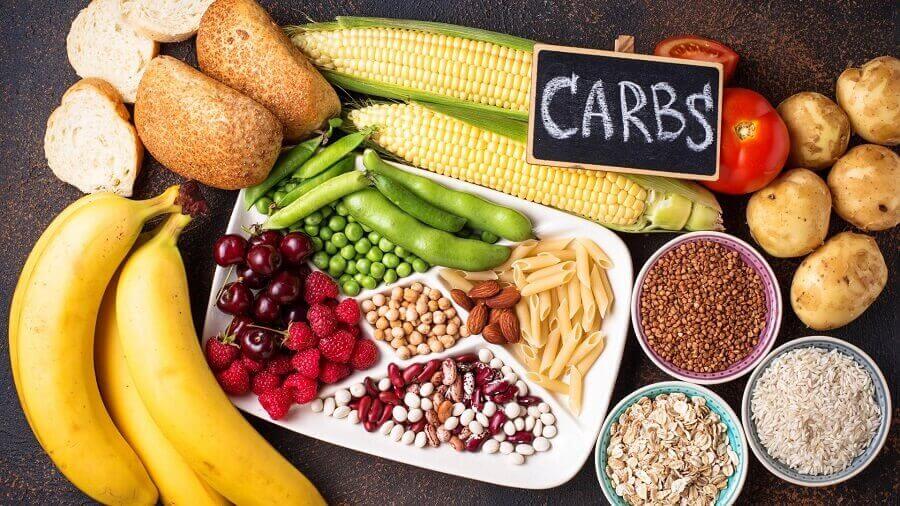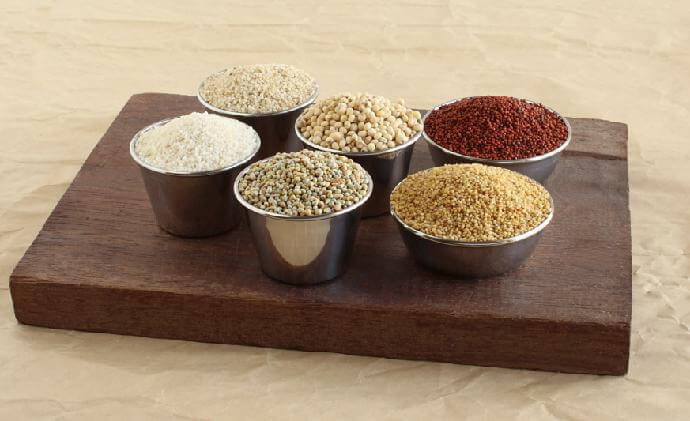Carbohydrates, carbohydrates, or carbohydrates are among the most controversial elements in nutrition.
For one thing, most eating guidelines suggest that more than half of our calories come from carbohydrates.
On the other, some claim that carbohydrates cause obesity and type 2 diabetes and that most people should avoid them.
There are good arguments on both sides, and it seems that carbohydrate needs largely depend on their quality.
This article takes a detailed look at carbohydrates, their health effects, and how to choose the best quality ones.
What are carbohydrates?
Carbohydrates are molecules composed mainly of carbon, hydrogen, and oxygen atoms.
The term lucid comes from the word glyκýs or glukús, which means sweet.
In nutrition, carbohydrates are substituted for carbohydrates and are one of the three essential macronutrients. The other two are protein and fat.
The primary role of carbohydrates in the diet is to provide energy. This is obtained when the body transforms them into glucose. In excess, carbohydrates can also be converted to triglycerides or body fat.
Types of carbohydrates
Structurally, all carbohydrates are made up of similar elemental units called saccharides.
However, carbohydrates can be classified in several ways. In nutrition, one of the most useful is in:
- Sugars: are short chain carbohydrates that contain one or two saccharides. Also known as monosaccharides or disaccharides, they are sweet and are quickly absorbed by the body. Some examples are glucose, galactose, sucrose, and fructose.
- Starches: are long chains of glucose molecules. They are usually found in vegetables and cereals. They are generally digested slowly by the body.
- Fiber: it is a particular type of carbohydrate, it cannot be digested for energy, so it does not provide calories. However, its consumption may have benefits for intestinal flora.
- Sugar alcohols: due to their structure, they also fall into carbohydrates; they are sweet but low in calories.
RELATED:
- Complex Carbs – What Are They And Why Are They Good?
- Carbohydrates, proteins, and fats – The ideal percentage
- Simple Carbs – What Are They?
Are carbohydrates essential?
More and more people reduce carbohydrates in their diet and claim that they are not an essential nutrient.
While this is technically true, the body can function without carbohydrates. Just because carbohydrates are not essential nutrients does not mean that they cannot be beneficial.
Many carbohydrate foods are incredibly healthy. Vegetables and fruits are examples of these foods accompanied by essential nutrients for the body.
According to the WHO, a person should eat up to 300 grams of carbohydrates per day to keep their body in optimal health. (1)
To stay healthy, you should avoid refined carbohydrates.
Refined carbohydrates have been taken away almost all of their essential nutrients and vegetable fiber content, so they provide empty calories.
Examples of these foods are refined sugars and flour.
Several studies affirm that the consumption of refined carbohydrates is associated with health problems such as obesity and type 2 diabetes. Therefore, if you want to stay healthy, you should avoid this type of carbohydrate. (2.3)
Refined carbohydrate foods generally lack essential nutrients as well. In other words, they are “empty” calories.
How to choose good quality carbohydrates?
As a general rule, carbohydrates found in their natural form are of better quality, while those that have gone through several processes are not.
It is likely to be healthy food if it is the whole food, regardless of the carbohydrate content.
Excess sugar-type carbohydrates are not recommended, not only because they can cause overweight and obesity but also because of their oxidizing activity. High glucose diets accelerate cellular aging.
Of course, nutrition is not only about eating carbohydrates but about achieving a balance with the rest of the macronutrients.
The FAO and WHO proposes that 60% of the energy you need comes from good quality carbohydrates.
Good quality carbohydrates are:
- Whole vegetables
- Whole fruits
- Vegetables
- Whole grains: oats, quinoa, brown rice, etc.
- Tubers: potatoes, sweet potatoes, etc.
Poor quality carbohydrates are:
- Refined sugars
- Drinks and juices with sugar
- Refined flours and white bread
- Bakery products: cookies, cakes, donuts, cakes, etc.
- Sweets: candies, sweet chocolates, bonbons
Good vs. bad carbohydrates
The distinction between good and bad carbohydrates is classified on a scientific basis.
However, it can be said that eating foods that contain carbohydrates but are of nutritional quality is associated with several health benefits. These good carbohydrates are vegetables, fruits, legumes, root vegetables, and whole grains.
These names are also used to design low carb diets such as the ketogenic or low carb diets. This type of diet consists of reducing the consumption of total carbohydrates to normalize the metabolism of carbohydrates.
Ultimately, they can help balance insulin levels and sensitivity that may have been altered by overeating harmful or refined carbohydrates.
ABSTRACT
Carbohydrates or carbohydrates are a type of organic molecules.
There are several types and classifications of carbohydrates; the most useful in nutrition is to divide them according to how the body can use them: sugars, starches, fiber, and sugar alcohols.
Good quality carbohydrates are those whole grains accompanied by fiber and other nutrients.
If you want to stay healthy, it is not necessary to eliminate carbohydrates from your diet but to moderate their consumption and choose those that are not very refined.







